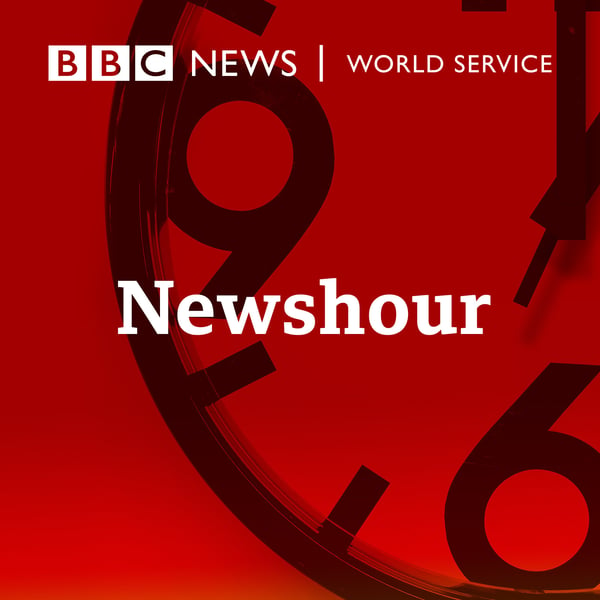Sheikh Hasina caught on tape authorising shooting of protesters
Newshour
BBC
4.4 • 984 Ratings
🗓️ 9 July 2025
⏱️ 43 minutes
🧾️ Download transcript
Summary
A BBC investigation has found that the former prime minister of Bangladesh, Sheikh Hasina, authorised her security forces to use lethal force against protestors last summer. The evidence is a leaked tape verified by the BBC. An estimated 1,400 people were killed and 12,000 injured during the student protests against a new law restricting access to government jobs.
Also in the programme: has Donald Trump lost his patience with Vladimir Putin – and how is the Russian president responding? And as it’s announced that the Bayeux Tapestry will be loaned to the UK next year, more than 900 years after its creation, we ask: is it actually coming home?
(IMAGE: Former prime minister Sheikh Hasina, chief of opposition Bangladesh Awami League, speaks at a rally in Dhaka on March 7, 2002 / CREDIT: Reuters/Rafiqur Rahman/NA/CP/File Photo)
Transcript
Click on a timestamp to play from that location
| 0:00.0 | Hello and welcome to News Hour from the BBC World Service. We're coming to you live from London. |
| 0:08.8 | I'm James Menendez. And we're going to begin today in Bangladesh and the results of a BBC investigation |
| 0:14.7 | into the violence that rocked the country this time last year, several weeks of protests, |
| 0:20.4 | counter-protests and police repression that ended |
| 0:23.3 | with the ousting of the country's longstanding Prime Minister Sheikh Hasina and the breakup of the power |
| 0:29.2 | structures in the shape of her Awami League party that sustained her. Well, our investigation has found |
| 0:35.7 | that Sheikh Hasina personally authorised the use of lethal force against the protesters. |
| 0:41.3 | In a leaked audio recording, which the BBC has verified, she's heard telling her security forces to shoot demonstrators wherever they were found. |
| 0:50.6 | In all, about 1,400 people were killed and 12,000 injured in a matter of weeks. |
| 0:56.8 | Ridi Jad reports. |
| 1:01.7 | This is where the bullet struck. It hit right here. |
| 1:04.6 | When the protests started, he joined in for the country. |
| 1:08.6 | A bereaved father holds up the share of his son, Mirage Hussein, who he lost last year |
| 1:13.5 | on August 5th. It was a day that the Prime Minister of Bangladesh, Sheikh Kisina, had resigned. |
| 1:19.9 | It should have been a day that Mirage celebrated, as his brother Pavel explains. |
| 1:25.4 | August 5th was a joyous day for everyone. |
| 1:28.5 | But hearing that my brother had died, it's impossible to explain how difficult it was for us. |
| 1:35.2 | For 15 years, Bangladesh was ruled by Sheikh Kisina and her Awami League party. |
| 1:42.0 | Critics say her reign became increasingly corrupt and authoritarian. |
| 1:45.7 | But she struck a nerve with young people, igniting protests all over the country, |
| 1:50.8 | when last year she reinstated a controversial job quota system. |
| 1:55.2 | About 30% of jobs were set aside for the families of veterans who fought in the country's war of independence. |
... |
Please login to see the full transcript.
Disclaimer: The podcast and artwork embedded on this page are from BBC, and are the property of its owner and not affiliated with or endorsed by Tapesearch.
Generated transcripts are the property of BBC and are distributed freely under the Fair Use doctrine. Transcripts generated by Tapesearch are not guaranteed to be accurate.
Copyright © Tapesearch 2025.

